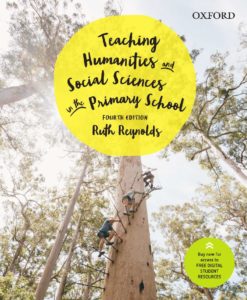First published in Education Review.
Teaching Humanities and Social Sciences in the Primary School author Ruth Reynolds, Associate Professor, School of Education, University of Newcastle
Graduates from accredited teaching courses will be required to pass literacy and numeracy tests before they can enter the profession this year. Potential teachers will have three attempts at passing the Literacy and Numeracy Test for Initial Teacher Education (LANTITE) tests, possibly helped by a growing industry focusing on helping people pass such tests (similar to the industry which has grown up around passing other high stakes tests such as the GAMSAT test for entry into graduate medicine.
The numeracy and literacy tests are administered in order to comply with Initial Teacher Education (ITE) for national accreditation established by Australian Institute for Teaching and School Leadership (AITSL) whereby future teachers need to meet these standards either going in or going out of the Teacher Education program. The standards have been reviewed in the past few years and these conditions were established in 2018.
On the surface, these tests might seem reasonable but we must consider what we stand to lose by instituting such tests, and whether they are necessary at all.
The expectation for teachers to achieve a certain level of numeracy and literacy is nothing new, and most teacher education programs had established requirements in these areas long before the introduction of the latest literacy and numeracy tests.
In a different approach, many years ago, when only a small percentage of only top-scoring final school graduate students were trained to teach, there were some teachers who entered the profession without the requisite literacy and numeracy scores; they were penalised by a lower payrate until they passed the tests. I can remember being taught by less than literate Science teachers, for example, in a period when it was hard to find Science teachers.
There appears to be a number of issues that have established a call for strict testing as a prerequisite for teaching even though 92 per cent of students pass the tests and go on to enter the teaching workforce. It seems like these tests mean that there is a lot of money and time going into blocking the bottom eight per cent who have, after all, satisfactorily completed four years of teacher education, including professional experience of at least 90 days.
One of the reasons for the concern about teaching standards has been that some places in teacher education universities being offered to those who have a relatively low ATAR. A ranking of less than 60 seems to the number that worries commentators, but this cut-off point varies considerably, and some reports point to a ranking of less than 30. This might not point to poor numeracy and literacy skills, but certainly, it reveals they did not perform as well as higher ranking students in final school exams and assessment tasks.
This situation results from a need for universities offer as many places as they can attract funding for because they need to fill places and earn money from filling these places, so the federal funding model for universities is one part of the problem. If they do not fill their allowed quota they do not get the money and universities are being continually squeezed of funds for both teaching and research.
However, there are many reasons why a student may get a low ATAR score including cultural, social, access, and health issues, to name a few, and these may also result in a low LANTITE test score. The present teacher education model has allowed students on low ATAR scores into teaching programs with a view that some areas of initial disadvantage (in terms of ability to pass such tests) can be turned around before they graduate. The debate thus becomes, should students be tested going into or out of ITE programs, and if they fail, how did they complete all those years of tertiary without being literate and numerate?
The next question becomes what do these students offer the teaching profession, despite an inability to score highly on these tests? For a start, the composition of the teaching profession remains very Anglo –Australian, and so, to support the diversity of students in our schools, students who represent many different cultural backgrounds (and who therefore may struggle with the cultural assumptions of these tests) should be supported to become teachers. These teachers would help all of us better clarify culturally responsive practices in our classrooms and build a stronger and more inclusive society. There is little argument with the notion that Indigenous students and teachers have a valuable role to play in schools and universities. After all, they are the role models we need in our Indigenous communities.
Another question that should be asked is why would we only test these particular skills? Our current Australian Curriculum includes literacy and numeracy as key capabilities, but also includes many other general capabilities such as critical and creative thinking, intercultural understanding, information and communication technology skills, personal and social capability and ethical understanding.
Who could argue with the proposition that these too need to be in a teacher’s skill set? Should we also have a test for them? In addition, there is set curriculum discipline knowledge, established curriculum discipline skills to be taught; and cross cross-curriculum priorities for modern Australians including Aboriginal and Torres Strait Islander histories and cultures. Should we also test these? In reality, is a standardised test essential in order to have faith in the skill levels of the current teaching profession?
We have a national body for teacher professional standards, our universities have professional guidelines to follow in terms of the preparation of teachers, and school teachers monitor and guide our preservice teachers. We live in a democracy and feedback on teaching skills is constantly provided in our free press. Let’s continue to critique, to discuss and to adapt, but think twice before we punish teachers unilaterally for failing a test.


Leave a Reply